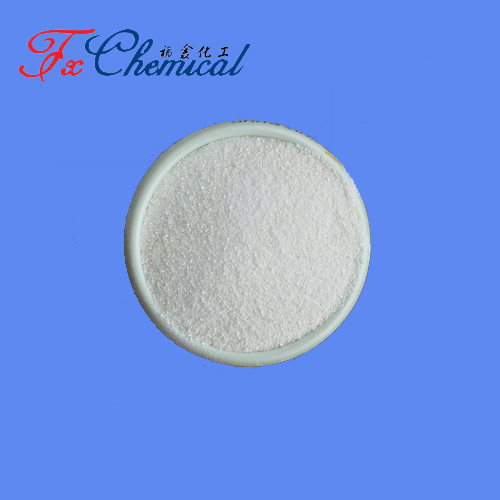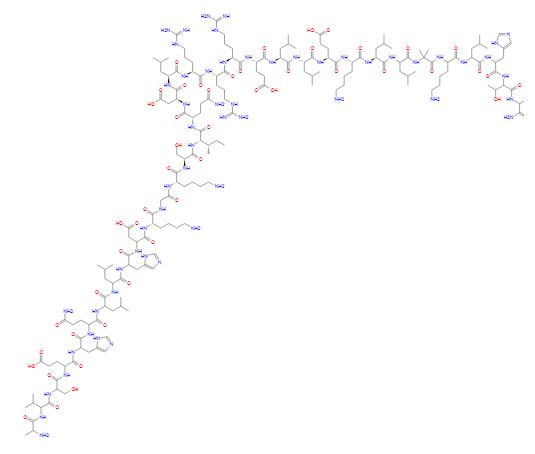
Search

Search



Pralidoxime iodide (often abbreviated as 2-PAM iodide) is a reactivator of acetylcholinesterase and is used primarily as an antidote to treat organophosphate poisoning, which is typically caused by exposure to certain pesticides or nerve agents.
The full name is Pralidoxime iodide, with "pralidoxime" being the active component, and "iodide" referring to the iodide salt form of the compound.
It is a chemical compound that contains a quaternary nitrogen atom, which is essential for its activity in the treatment of poisoning.
Pralidoxime iodide works by reactivating acetylcholinesterase, an enzyme that is critical for the normal functioning of the nervous system. Here's how it works:
Acetylcholinesterase inhibition: Organophosphates (found in pesticides and nerve agents) inhibit acetylcholinesterase, an enzyme that breaks down acetylcholine, a neurotransmitter. This results in the accumulation of acetylcholine, which overstimulates the nervous system and can lead to toxic effects such as muscle spasms, respiratory failure, and even death.
Reactivation of acetylcholinesterase: Pralidoxime iodide binds to the organophosphate-inhibited acetylcholinesterase enzyme and breaks the bond between the organophosphate and the enzyme. This allows acetylcholinesterase to regain its normal function, leading to the degradation of excess acetylcholine and mitigating the toxic effects.
Pralidoxime iodide (also known by its brand name 2-PAM iodide) is an antidote used primarily to treat organophosphate poisoning. Organophosphates are chemicals commonly found in pesticides and nerve agents, such as sarin and VX, which inhibit the enzyme acetylcholinesterase. When acetylcholinesterase is inhibited, acetylcholine accumulates at nerve synapses, leading to continuous stimulation of muscles, glands, and other tissues, which can result in fatal outcomes if not treated promptly.
Organophosphate Poisoning Treatment:
Pralidoxime iodide is used to treat poisoning caused by organophosphates, which are found in insecticides and chemical warfare agents.
It works by reactivating acetylcholinesterase, the enzyme that is inhibited by the organophosphates. By breaking the bond between the organophosphate and acetylcholinesterase, pralidoxime helps to restore the enzyme’s normal function, allowing the body to properly degrade acetylcholine and reduce toxic overstimulation.
Nerve Agent Exposure:
In cases of exposure to nerve agents (such as sarin, VX, and others), pralidoxime iodide is administered as part of a treatment protocol that includes atropine (to block acetylcholine receptors) and sometimes diazepam (to control seizures).
It is especially important in cases where early intervention is required, as nerve agents can cause rapid onset of symptoms and potentially fatal outcomes if untreated.
Cholinergic Toxicity:
Pralidoxime iodide is used in the management of cholinergic toxicity due to the excessive accumulation of acetylcholine. The symptoms of this toxicity include muscle weakness, difficulty breathing, convulsions, and in severe cases, respiratory failure.
Pralidoxime iodide is a reactivator of acetylcholinesterase. It works by binding to the organophosphate-inhibited acetylcholinesterase enzyme and breaking the bond between the enzyme and the organophosphate. This allows acetylcholinesterase to regain its function and resume the breakdown of acetylcholine.
It is most effective when administered soon after exposure to the organophosphate, as the longer the exposure, the more difficult it becomes to reverse the effects.
It is typically administered intravenously or intramuscularly in emergency settings, often in conjunction with other treatments like atropine to manage symptoms of toxicity.
Pralidoxime iodide is most effective when given early, ideally within a few hours of exposure to an organophosphate or nerve agent.
It is not useful for carbamate poisoning (a different class of chemicals), as carbamates do not form a stable bond with acetylcholinesterase and can be reversed by other means.
The use of pralidoxime iodide should be closely monitored, as it can have side effects such as dizziness, nausea, or changes in blood pressure. In some cases, it may also cause a muscle-relaxant effect, which can be dangerous if not appropriately managed.
In summary, pralidoxime iodide is a critical therapeutic agent in the treatment of organophosphate poisoning and nerve agent exposure, especially when used in combination with other medications to address the toxic effects of acetylcholine buildup.

Fortunachem Provides Not Only Professional Chemical Products But Also Professional Help
Keeping you up-to-date with all the latest information, news, and events about Fortunachem!

Quick Links
Add:
E-mail:
 English
English  Español
Español  français
français  العربية
العربية 
![China Supplier 4H-Thieno[2,3-b]thiopyran-4-one,5,6-dihydro-6-methyl-, 7,7-dioxide, (6S) CAS 148719-91-9 China Supplier 4H-Thieno[2,3-b]thiopyran-4-one,5,6-dihydro-6-methyl-, 7,7-dioxide, (6S) CAS 148719-91-9](/uploads/image/20250628/4H-Thieno[2,3-b]thiopyran-4-one,5,6-dihydro-6-methyl-,_7,7-dioxide,_(6S)主图.jpg)




